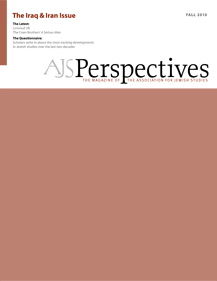Dear Colleagues,
Over the past few months, The Chronicle of Higher Education has published several articles about the erosion of tenure in American institutions of higher education, developments that have scared many members of the academic community. According to these articles, an ever-growing percentage of positions at colleges and universities are now held by adjunct faculty—men and women hired to teach one or two courses, usually at extraordinarily low pay, and who are not on the tenure track at all. Indeed, if present trends continue, the majority of academic positions will be held by adjuncts rather than tenured or tenure-track faculty in the not-too-distant future. Such a scenario is frightening indeed. It is frightening for students, because most of their teachers will likely have little if any loyalty to the institutions at which they teach, and they will understandably be exhausted from running from school to school trying to cobble together a living, perhaps not even aware of where they are on a given day. They will have little incentive to take the time to get to know students, mentor them, and write letters of recommendation on their behalf. The scenario is also frightening to the adjunct faculty themselves, who, while receiving exploitative wages must wonder how they can possibly make a living after spending so much time getting a PhD. Moreover, if they teach several courses at multiple universities, they certainly have no time to devote to the scholarship that is the essence of the academic enterprise and which might help them procure a tenure-track job. The scenario is also frightening to those of us who have tenure because the erosion of tenure places academic freedom at great risk—and academic freedom is crucial for the modern university. Non-tenured faculty might be excellent teachers, but higher education without tenure means exploitation, lack of academic coherence, and the possibility of pressure to teach subjects in a way that abandons critical analysis.
Why am I so convinced that tenure is necessary for academic freedom? After all, even tenured faculty have to deal with political pressures, and many succumb to intellectual pressure to engage in interpretations that are trendy at a given moment. Some people who follow more traditional forms of scholarship feel that it is hard to get a job or get promoted unless one is engaged in what is currently "all the rage." Informal pressure to conform, however, is not the same thing as a real breach of academic freedom. Tenure protects faculty from pressure to indoctrinate our students in a particular world view, and it protects academics from pressure to avoid research that might offend the political establishment or the donors to the university. It also allows people to pursue the kind of research that they love and teach the kind of courses they think worthy. Such freedom is not possible for exploited and exhausted adjunct professors, but it is absolutely necessary for the health of scholarship and the American university itself.
I realize that the tenure situation is not as bleak as the prophets of doom would have us believe. As a person with some knowledge of statistics, I know that the gross statistics of the Chronicle articles are misleading because they lump together universities and colleges along with community colleges and the growing number of for-profit and online universities, both of which rely almost totally on adjunct faculty. A study of four-year colleges and universities alone would probably reveal that the percentage of tenured and tenure-track faculty is reasonably high, and that the current economic downturn means less money for those institutions to hire adjuncts. In any case, these institutions still give tenure, and the criteria for tenure remain excellent scholarship, teaching, and service, so the tenure system remains intact and healthy.
What impact does the current fear about the erosion of tenure have on Jewish studies? At the moment, I suspect it has had very little impact. After all, Jewish studies courses are rarely taught at the institutions that rely heavily on adjuncts, such as community colleges, which teach mostly basic introductory courses in the standard fields, or forprofit and online universities, which, according to their ads, focus largely on business management and computer technology. Jewish studies has found a home at elite colleges and universities and at major state universities, in short, at places that still rely on the tenure system. I am glad that such is the case. After all, the growth of Jewish studies in the American academy has been driven by donors, by Jewish philanthropists who have given generously to universities to fund Jewish studies programs. In the absence of tenure, one could imagine a scenario in which a donor, unhappy with the critical scholarly views or the political positions of a professor whose salary is paid by the gift of that donor, might demand that the professor be fired. Most donors would probably never make such demands, but even the possibility of such interference in the academic world makes me shudder. Tenure protects us from even the possibility of such interference. Tenure, after all, is administered by the faculty, who, almost always, base their decisions on the quality of the scholarship, teaching, and service, and not on political or other inappropriate considerations. If tenure were to disintegrate at four-year colleges and universities, however, Jewish studies might suffer disproportionately.
I am an optimist, and so I think that tenure will not disappear. It will remain strong at colleges and universities, although probably not at the community colleges and the for-profit schools. The academic community should think of ways to protect faculty at those institutions from exploitation. We also need to convince the non-academic world, including state legislators, that the university is not a business, and the life of the mind does indeed need some protection. That protection is tenure.
Marsha Rozenblit
University of Maryland

